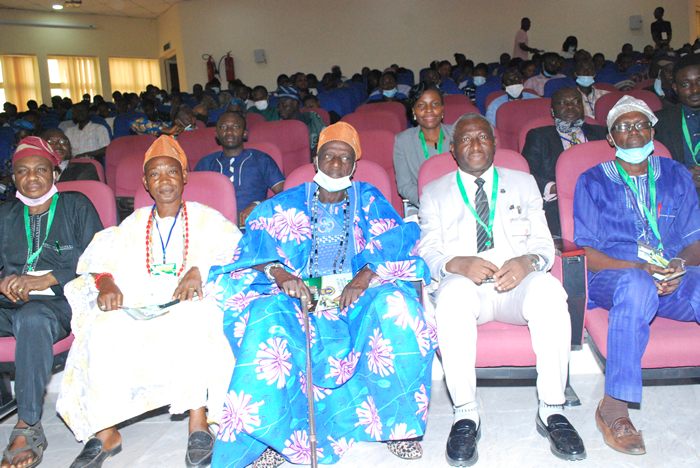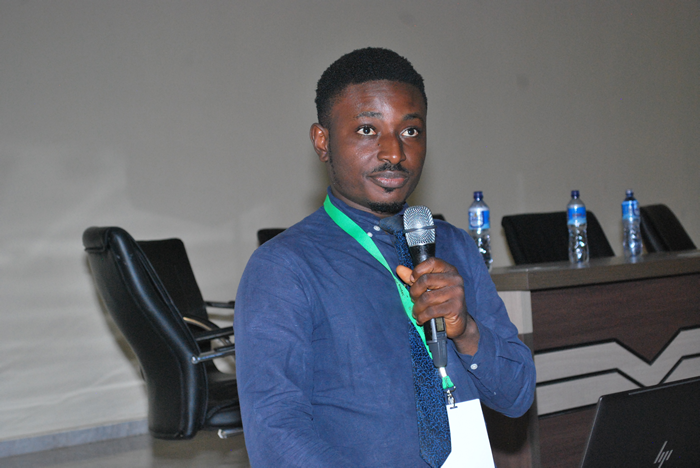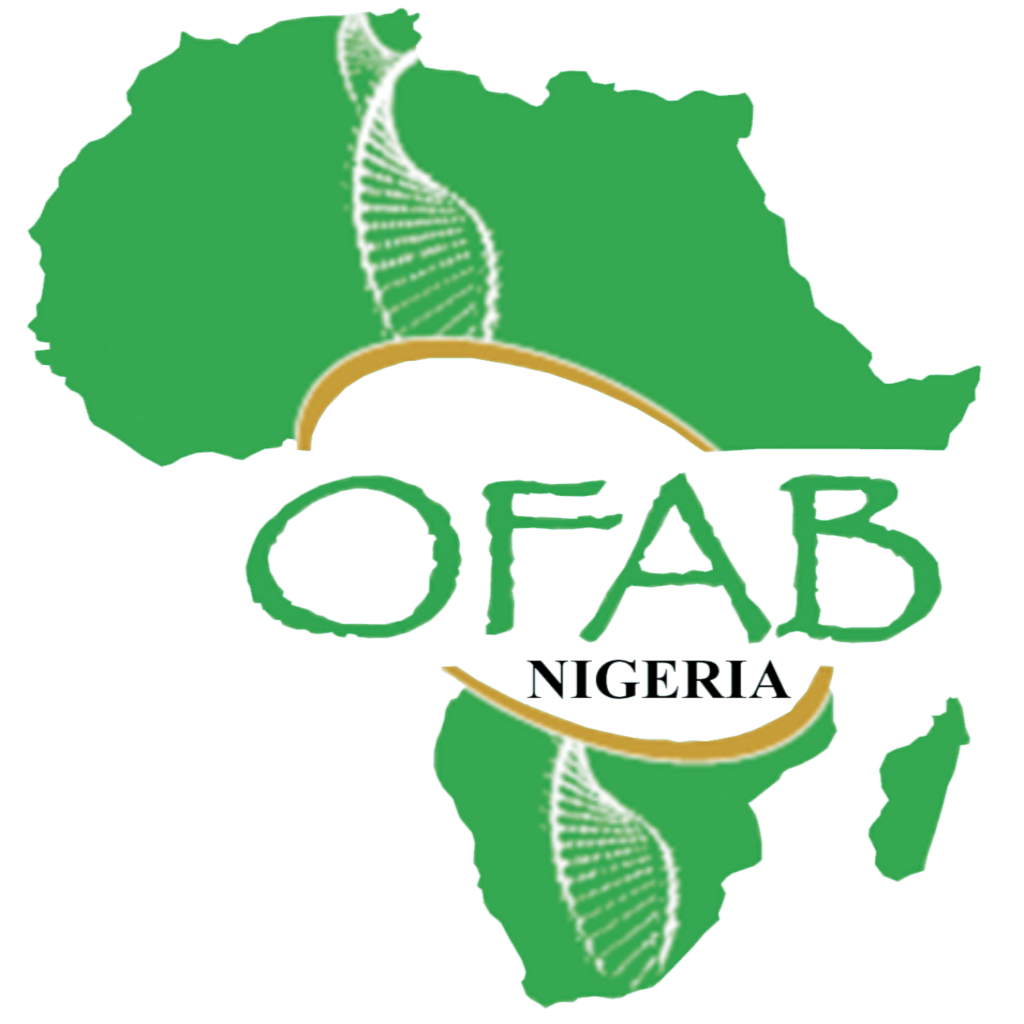
The National Biotechnology Development Agency (NABDA); Open Forum on Agricultural Biotechnology in Africa (OFAB), Nigeria Chapter; PBS, Washington DC; the Ife Biotechnology Group and others held a sensitization event for the six States in South Western Nigeria. They want the States to know the benefits of GM Crops and mobilize for full adoption of the GM technology. This is because Nigeria and indeed Africa is at the point where the adoption of Biotechnology tools in Agriculture is no longer an option but a must.
Delivering the keynote speech titled ‘The Role of Biotechnology in Solving the Problem of
Food Insecurity’, the DG/CEO NABDA, Professor Abdullahi Mustapha said agricultural biotechnology plays a complimentary role to traditional breeding by tackling those challenges that the traditional breeding cannot overcome both in crops and livestock. Biotechnology he said will continue to revolutionize agriculture by contributing positively in mitigating the impact of climate change in agriculture through greenhouse gas reduction, increasing crop resilience to environmental stresses without the need of more inputs while resulting to an increase in yield using smaller plots land.
He cited the success stories from already commercialized GM products in Nigeria saying that the adoption of the GM Cotton seeds has the potential to bring in much needed cotton revolution in the country and Africa at large by the revival of cotton related industries and lint exports.
Earlier, in his welcome remarks, the former DG/CEO, NABDA, Professor Bamidele Solomon, Leader of the Ife Biotechnology Group (IBG), highlighted the potentials of biotechnology tools in combating food insecurity in the country. This view was reiterated by the Vice Chancellor, Obafemi Awolowo University, Ile-Ife, Prof Eyitope Ogunbodede who lauded the various advancements that Nigeria has made towards GM Crops adoption. The Vice-Chancellor was represented at the Event.
On the status of Biosafety Regulation in Nigeria, the Director General /CEO, NBMA, Dr Rufus Ebegba told the stakeholders that all GM Crops in the country are beneficial and safe. Modern biotechnology came through the understanding of the structure and components of genes and DNA, he said. Government he noted, has displayed commitment to safe adoption of biotechnology research in Nigeria by creating the National Biosafety Management Agency and amended its establishment act to include the regulation of Emerging Biotechnologies such as Gene Editing, Gene drive, Synthetic biology and Biosecurity in Nigeria. Dr Ebegba was represented at the workshop.
In another development, Country Coordinator, OFAB, Nigeria, Dr Rose Maxwell Gidado spoke on how genetic modification technology is revolutionizing Nigeria economy. “Genetic modification of crops and animal is nothing new”, she said. “People have been modifying the genes of plants, animals and microbes for thousands of years – even before they knew what a ‘gene’ was. Early plant and animal breeders would choose individual organisms with desirable traits and use methods such as selective breeding to achieve the result they wanted: bigger and sweeter fruit, perhaps, or dogs that were loyal and easy to train.” Dr Gidado who was represented at the sensitization workshop by Programme Assistant at OFAB, Mr Abraham Isah, said biotech crops have contributed to food security, sustainability and climate change in other countries that have commercialized GM crops. They are reaping the benefits which include increased crop productivity and farm income gains; conserved biodiversity by saving up to 183 million hectares of land from ploughing and cultivation and reduced carbon dioxide equivalent to removing 1.67 million cars off the road for 1 year. Other benefits of the technology are poverty alleviation by uplifting the lives of 65 million farmers and their families and providing better environments by decreasing herbicide and insecticide use.

Furthermore, the President of the Plant Breeders Association of Nigeria; the Project Director, NEXTGEN Cassava Project and the Consultant, VIRCA PLUS Project, Prof Chiedozie Egesi in his presentation titled: ‘Unleashing the Power of Technology in Driving a Cassava-based Economy’, noted that agricultural biotechnology is a formidable weapon that must be adopted for any country to achieve food security. Agricultural biotechnology, according to him, is a combination of scientific tools and techniques to enhance agricultural productivity, quality and diversity; a Mitigating tool to cope with current challenges defying traditional practices; a tool that facilitates species protection, climate change adaptation, stress management and disease management; Excellent tools for addressing global food crisis.
Professor Egesi said gave details on various Confined Field Trials (CFT) going on at the National Root Crops Research Institutes (NRCRI), Umudike, such as Pro-vitamin A cassava; Iron-fortified cassava; CMD resistance cassava and Virus resistance/elevated levels of iron and zinc and that they are all under development.
On the future plans of the VIRCA PLUS Project, he informed the forum that they plan to conduct Confined Field Trials (CFT) of selected CBSD+Fe+Zn lines at two locations for Bio-accessibility, bioavailability, textural and sensory evaluation of gari and fufu; First multi-location of Regulatory Field Trials (RFT) at three sites in Nigeria for Agronomic, composition and molecular analysis of RFT data and samples.
Also at the Event, Professor S.A. Olakojo from the Institute of Agricultural Research andTraining (IAR and T), Obafemi Awolowo University Moor Plantation, Ibadan spoke on: ‘The potential and productivity of maize for sustainable food and nutrition security in Nigeria’. Dr. (Mrs.) V. A. Tanimonure, also from Obafemi Awolowo University, Ile-Ife made a presentation on “Economic Importance of Biotechnology Crops.” She defined the GM Crops as plants whose genome have been modified. She called on Nigeria to adopt Biotech crops to combat the impact of climate change, population growth and urbanization, biotic stresses and socio-economic dynamics.
This year’s ASABAW 2021 was well attended by farmers, academics (Principal Officers of Universities), Scientists, Journalists, Private and Public Sectors, Prominent scholars, Middle-career Scientists, Students of science and humanities, including Law; and Non-Government Organization. The theme was “Regulation and Deployment of Biotechnology in Enhancing Crop-Based Economy in Nigeria.”

